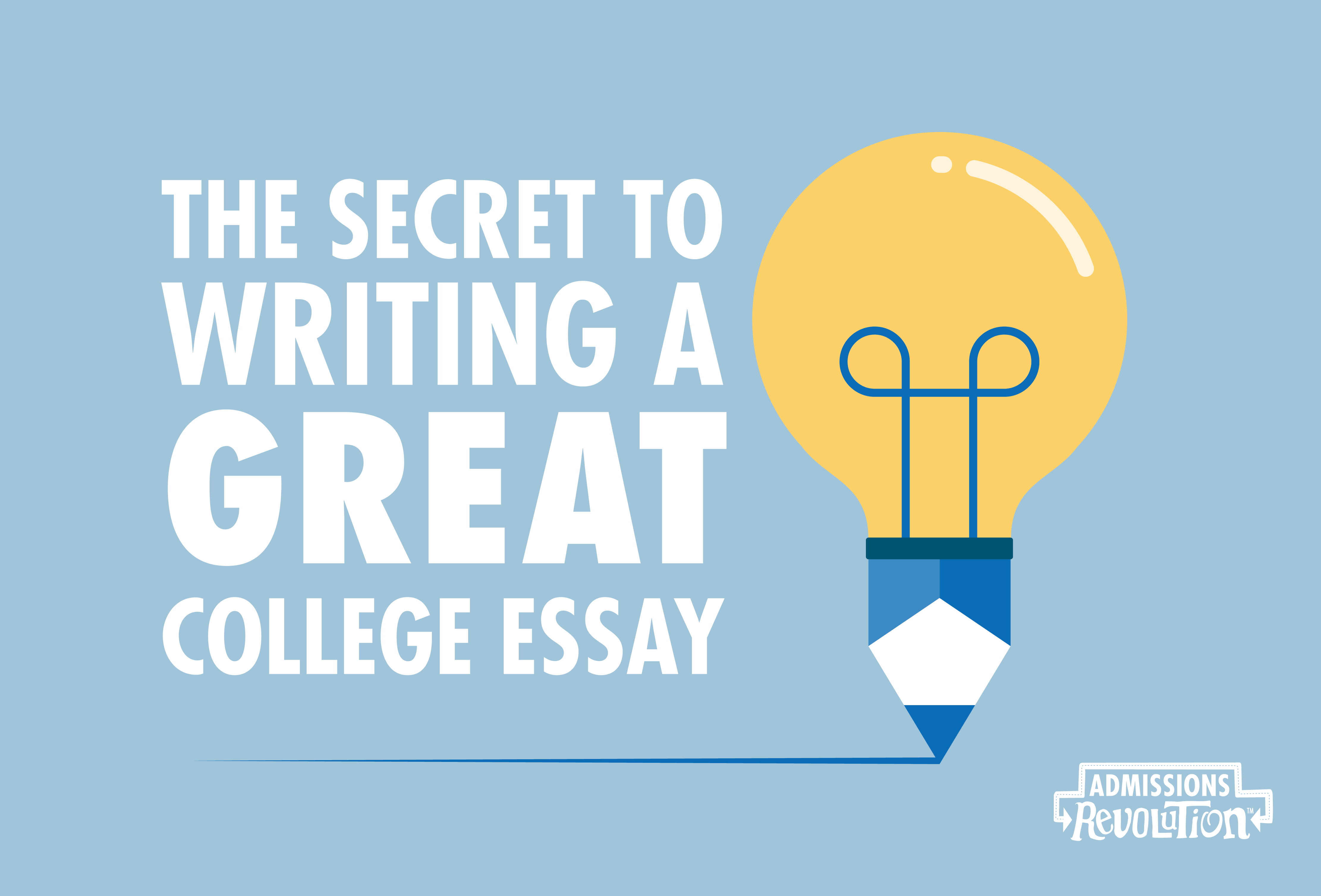Passing your driver’s test. Overcoming your fear of heights and riding a roller coaster for the first time. Wanting to be a doctor since you were a little kid. These three topics used to be my three most dreaded essay themes to read about when I worked in college admissions.
If you're looking for the perfect checklist or step-by-step guide…you don’t need one. The secret for writing your college essay is actually quite simple. It all starts with your essay topic. Sure, it has to be well-written and well-structured with a good use of grammar. But if you pick the right topic that is truly distinctive (of you) that no one else in the world could write about and you are so proud of the topic, the essay begins to write itself. It’s true.
"Pick a topic that's truly distinctive of you that no one else in the world could write about" TWEET THIS
Find Your "Ism"
How do you come up with a truly distinctive topic? Start thinking about the fundamental things that make you the person you are. They can be quirks, moments in your life (routine or existential), and relationships that shape who you are. I talk at length about these little things that I call “isms” in the video, “The College Essay.” Your “isms” are, in their essence, the purest parts of who you are.
My “isms” are “Sara-isms.” Your “isms” are your hidden gems, and they tend to make the most powerful and inspiring essays. They are usually much less obvious than the monumental events in your life. And, that’s the point of the college essay. If you write about something that your guidance counselor and teachers will mention in their letters, it’s almost a wasted opportunity. That “big game” essay will be less powerful if your guidance counselor and teachers wrote about that “big game” moment in your letters of recommendation. The best test for whether or not to write about a topic is this: would you be the person you are today if that quirk, moment, relationship, or “ism” were taken away from you?
And, here’s a little secret. Worry less about the essay prompts because almost any “ism” you choose to write about can usually fit in nicely to one of the essay choices.
"Your “isms” are your hidden gems, and they tend to make the most powerful and inspiring essays." TWEET THIS
Just Start Writing
Now, you’re saying to yourself, “But how can I write a full essay on this topic?” The answer is to just start writing. Don’t worry about structure, sentence flow, and paragraph form just yet—that comes in the second, third, and fourth draft of your essay. (Yes, it takes that many drafts and sometimes more.) Just start writing down ideas that relate to the topic you plan to write about. If you can’t stop typing or writing because you have so many things related to that topic that suggests it’s a topic that comes easily to you and means something. If you are struggling, try another topic.
You want your essay to almost start abruptly. It catches the attention of the admissions officer. That means you don’t need to start off your essay saying, “The event that marked my transition from childhood to adulthood was…” or “I experienced failure when…” Instead, try to start the essay with a short story or feeling. If you are known to always ride your bike everywhere, what made you do it or who made you do it is a great place to start. Take the reader with you on the journey or the revelation! Maybe you grew up riding through trails on the back of your dad’s bicycle, and feeling unstoppable with the wind in your hair and the freedom to think grand like the trees in the woods that you would pass by. Bring the reader with you on the journey and the revelation. This story and feeling is an introduction to your topic and should be the first paragraph.
The second and third paragraphs should explain the trying moments, the doubters, or the failures you experienced during this journey or revelation. Don’t try to write about everything; the essay can only be 650 words. Just cover two or three concentrated, meaningful examples in the middle of your essay. And by the final paragraph you want to bring things into focus about who you are, what you know, or what you want out of your life. This should be an uplifting, positive, and optimistic paragraph about you and your future.
Make Them Feel Something...Anything
Regular kids can write extraordinary essays. You don’t need a monumental event in your life to show a side of who you are. You would be surprised, the best topics and the best essays are pure and simple. They can be routine things in your life; they can be personal characteristics that are a part of your DNA; they can be the little things that have shaped you. You want the admissions officer to react positively. The reaction can be a lone tear, or a chuckle, or their head nodding in agreement with what you write. Because in the end, these admissions officers are human. They relate incredibly well to the inner-thoughts, inner-challenges, and inner-“isms” that make you truly distinctive.







.jpg)




